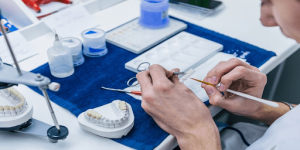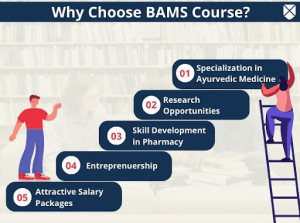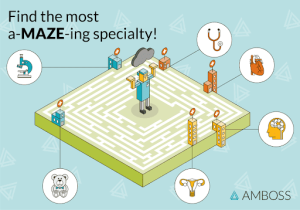MBBS vs. BDS vs. BAMS vs. BHMS: Choose The Right Medical Course

Are you feeling a little queasy about choosing the right medical course for you? Choosing the right medical course is a decision that can have a major impact on your future career and life path. You don’t want to end up in a career that makes you as uncomfortable as a visit to the proctologist, right? That’s why it’s important to consider all your options and find the course that suits your interests and strengths.
But let’s face it, the medical field can be intimidating, especially with so many options available. Should you go for the classic MBBS or opt for the trendy BAMS? Does a career in dentistry (BDS) sound more appealing than practising homoeopathy (BHMS)? It’s enough to make your head spin like a centrifuge in the lab. But fear not, we’re here to help you make sense of it all.
So, whether you’re still in high school trying to decide your career path or a college graduate looking to make a switch, this blog is for you. Let’s navigate the world of medical courses together and find the right one for you!
Make Your Way Out Of The Maze!
So, you’re considering pursuing a career in medicine, but you’re not sure which path to take? Well, fear not my young Padawan, for we are here to guide you through the confusing maze of medical courses. Today, let’s start with the mother of all medical courses – the MBBS.
- MBBS Course
MBBS, or Bachelor of Medicine and Bachelor of Surgery, is a professional degree in the medical field. It’s a dream course for many students who aspire to become doctors. But, who can actually pursue this course? Well, if you’re a science student who’s just passed 12th grade with flying colours and is willing to dedicate the next five and a half years of your life to intensive study, then congratulations, you’re a good candidate for MBBS.
Now, let’s talk about the scope of MBBS in India. India is a country with a vast population, and the demand for healthcare services is always on the rise. Hence, the scope for MBBS graduates in India is vast. After completing your MBBS, you can either pursue higher studies or start working as a general practitioner or medical officer. The job opportunities are limitless, and the pay is pretty decent too.
But before you jump on the MBBS bandwagon, let’s talk about the pros and cons. The pros are that you get to help people, make a real difference in their lives, and get to be called a ‘doctor.’ The cons? Well, you’ll have to study harder than you ever have before, you might not get much sleep during your residency, and you might not have much of a social life during your student years. But hey, nothing worth having comes easy, right?
So, if you’re willing to put in the hard work, have a passion for helping people, and can stomach the sight of blood (or at least work your way up to it), then MBBS might just be the right course for you. May the force be with you, young Jedi!
- BDS Course
Alright, let’s talk about the BDS course! BDS stands for Bachelor of Dental Surgery and is a popular choice for students who want to specialise in dentistry.
First up is the eligibility criteria. To be eligible for BDS, a candidate must have completed 10+2 with Physics, Chemistry, Biology, and English. And just like MBBS, clearing the NEET exam is a must.
Moving on to the course structure, the BDS program generally spans over 5 years, which includes 4 years of academic training and 1 year of compulsory rotating internship. During the course, students will learn about subjects such as oral anatomy, pharmacology, dental materials, and various dental procedures.
A BDS graduate can pursue a career as a dentist, dental surgeon, or even a dental consultant. The demand for dental professionals is steadily increasing in India, so there’s definitely scope in this field.
But before you start jumping with excitement, let’s look at the pros and cons of the BDS course. On the positive side, the course offers a great work-life balance as most dental procedures don’t require emergency or on-call duties. Plus, it’s a lucrative profession that pays well. However, one major drawback is the high cost of equipment and infrastructure required for setting up a dental practice.
Now, who can be a good candidate for this course? Anyone who has a keen interest in oral health enjoys working with their hands, and has an eye for detail can excel in this field. So, if you’re the kind of person who doesn’t mind looking inside people’s mouths all day, then BDS might be the right choice for you!
Overall, BDS is a promising career option for those who want to specialise in dentistry. Just remember, if you choose this path, always keep a toothbrush handy – you never know when you might need to give someone a quick cleaning!
- BAMS Course
Are you interested in alternative medicine and want to help people live a healthy lifestyle? Then, Bachelor of Ayurvedic Medicine and Surgery (BAMS) might be the right course for you!
First things first, to be eligible for BAMS, you must have completed your 10+2 education in the science stream, with biology as one of the subjects.
Now, onto the course structure. BAMS is a five-and-a-half-year course, which includes four and a half years of classroom education and one year of internship. During the course, you will learn about ancient Indian medical practices, including herbal medicines and massages.
The scope of BAMS is vast in India, where Ayurveda is a widely accepted form of medicine. After completing the course, you can work as an Ayurvedic doctor or start your own clinic. You can also pursue higher education in Ayurvedic specialities such as panchakarma, gynaecology, and paediatrics.
Wondering if you’re a good fit for BAMS? Well, if you have a keen interest in natural remedies, enjoy helping people, and have a compassionate nature, then this might be the right course for you.
But wait, let’s not forget about the pros and cons. The pros are that you get to learn about ancient Indian medicine and help people live healthier lives. The cons are that it can be challenging to find employment in some parts of the country, and the pay may not be as high as in other medical professions.
- BHMS Course
Alrighty then, let’s talk about BHMS, or as I like to call it, “The Homeopathy Hustle.”
First things first, if you’re not a fan of popping pills (of course, homeopathic pills) then this course might be for you. BHMS stands for Bachelor of Homeopathic Medicine and Surgery, and it’s all about the alternative approach to medicine. Think natural remedies, herbs, and diluted substances that supposedly cure all sorts of ailments.
But don’t let my scepticism fool you, BHMS does have its merits. It’s a five-and-a-half-year course that includes a year of internship, and it covers everything from anatomy to philosophy to practical training in homoeopathy.
Eligibility-wise, you need to have passed 10+2 in science with a minimum of 50% marks in physics, chemistry, and biology. And, of course, a knack for all things natural and holistic.
As for career opportunities, you can go on to become a Homeopathic Doctor, work in research, or even open your own clinic. And with the increasing interest in alternative medicine, the scope for BHMS graduates is only growing.
In the end, the choice, of course, is up to you and what you’re interested in. If you’re passionate about natural remedies and want to explore the world of alternative medicine, then BHMS might just be the right fit. But if you’re not quite convinced, don’t worry, there are plenty of other medical courses out there to choose from.
But let’s be real here, BHMS does have its fair share of sceptics and critics. Some say it’s nothing more than a placebo effect, and others question the lack of scientific evidence to back up the claims made by homoeopathy. So if you’re someone who needs hard facts and scientific proof, this course might not be for you.
But How To Choose? Which One Is The Right Way?
So, now that we’ve looked at each course individually, it’s time for the ultimate showdown – a comparison of MBBS, BDS, BAMS, and BHMS!
For MBBS, BDS, and BHMS, the eligibility criteria are pretty similar – you need to have completed your 10+2 education with Physics, Chemistry, and Biology as your core subjects. For BAMS, you’ll need to have studied Sanskrit as well.
MBBS and BDS courses are pretty similar in structure, with both being 5-year programs that include theoretical and practical training. BHMS is a 4.5-year program, while BAMS is a 5.5-year program that includes an internship.
MBBS is the most sought-after medical course in India, and for good reason – it opens up a world of opportunities and offers a stable career path. BDS is also a great option for those interested in dentistry, while BAMS and BHMS offer unique perspectives on medicine and healing. However, these courses also come with their fair share of challenges – the high fees, intense competition, and long hours of studying and training.
Ultimately, the choice between MBBS, BDS, BAMS, and BHMS depends on your interests, aptitude, and career goals. If you’re interested in modern medicine and want to become a doctor, MBBS is the way to go. If you’re passionate about dentistry, BDS is a great choice. If you want to explore traditional medicine and healing practices, BAMS or BHMS may be the perfect fit for you.
The Prescription for a Happy Career
At the end of the day, remember that there’s no “right” or “wrong” choice – what matters is that you choose a course that you’re passionate about and that will help you achieve your career goals. If you need help knowing your own strengths and weaknesses and finding a career match based on your personality then we are here for you! We at Mentoria are always happy to help! Talk to our expert counsellors, to find the right career fit for you & get personalised step-by-step guidance for your future path.












